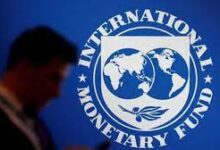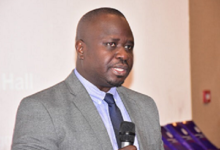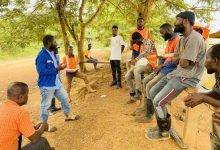
Caritas Ghana, the charity wing of the Ghana Catholic Bishops’ Conference, says the role of the media in demanding fiscal responsibility, sound economic management and advocacy for debt restructuring cannot be overemphasised.
Mr Thomas Awiapo, Acting National Director of Caritas Ghana, said Ghana was currently finding it difficult to manage its debt levels due to high inflation, currency depreciation and excessive borrowing.
That he said increased inequalities and weakened the capacity of government to deliver social services to the poor and vulnerable; hence, the media being the voice of the voiceless must hold leaders accountable and help address the country’s structural economic challenges.
Mr Awiapo made these remarks during a national advocacy training for news editors and reporters on the Special Drawing Rights (SDRs).
The SDR is an international reserve asset, created by the IMF in 1969 to supplement its member countries’ official reserves.
The one-day forum, which was organised by Caritas Ghana on the theme, “The Role of the Media in Securing an Inclusive Economic Recovery and Debt Relief”, touched on demanding accountability, transparency, and good governance around the use of public resource; securing an inclusive economic recovery; and monitoring SDRs allocation.
Mr Awiapo called for an effective collaboration among all stakeholders; to enforce the principles of transparency and accountability around public debt management, effective use of the SDRs, and other public resources to ensure fiscal discipline and guarantee the welfare of citizens.
“Caritas Ghana continues to call for clear and transparent practices that enable citizens and civil society organisation (CSOs) to openly follow how SDRs have been utilised to avoid misappropriation and also ensure the social sectors of the economy receives a fair share.”
Mr Bernard Anaba, a Policy Analyst at Integrated Social Development Centre (ISODEC), in his presentation highlighted cutting down on the importation of non-essential commodities.
He emphasised that it should be underpinned by a local production system that includes the willingness to reduce the per capita foreign exchange dependence to about 50 per cent of its current levels.
Mr Anaba said to enhance accountability, the International Monetary Fund (IMF) during its Article IV Consultation must engage CSOs to have access and peer review of the government before funds are allocated.
He explained that if the process included citizen’s review processes, government would see the need to have the endorsement of its citizens before they engage the IMF.
Mr Iddi Yire, a Media Analyst, in his presentation underscored the need to have regular training for the media profession in financial reporting as part of building their capacity.
Speaking on the topic “The Role of the Media in Advocating Debt Restructuring and Holding Government Accountable for the Utilisation of Special Drawing Rights (SDRs)”, Mr Yire suggested to the media to influence the nation’s financial landscape by provoking and sustaining a long-term economic recovery agenda.
They must also highlight the government’s actions geared towards resolving the ongoing crisis.
He also touched on the media’s role in influencing people to become more confident and positive about the economy, adding that in the interest of the national agenda, the media must avoid publishing stories that would scare away investors. -GNA




